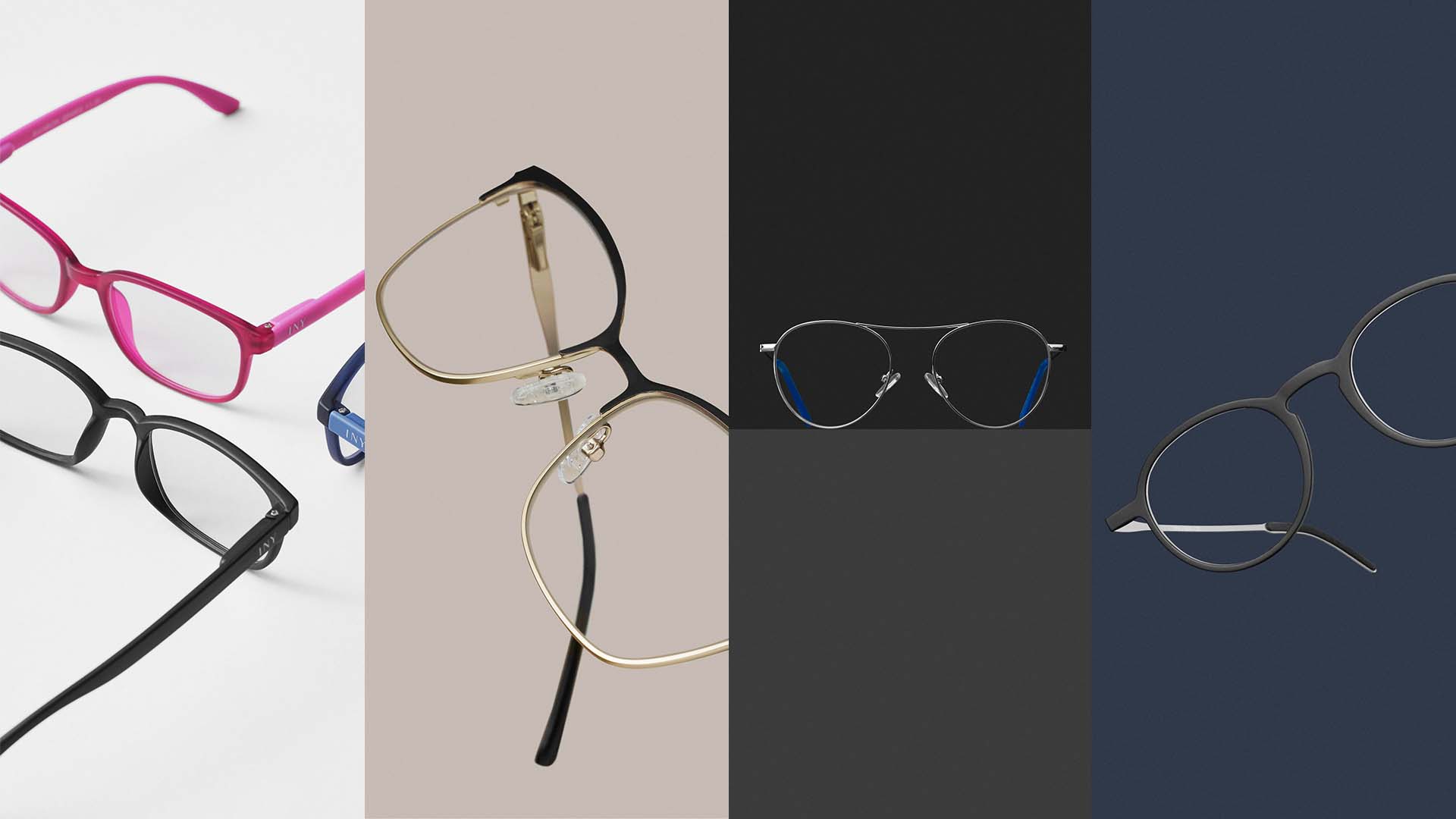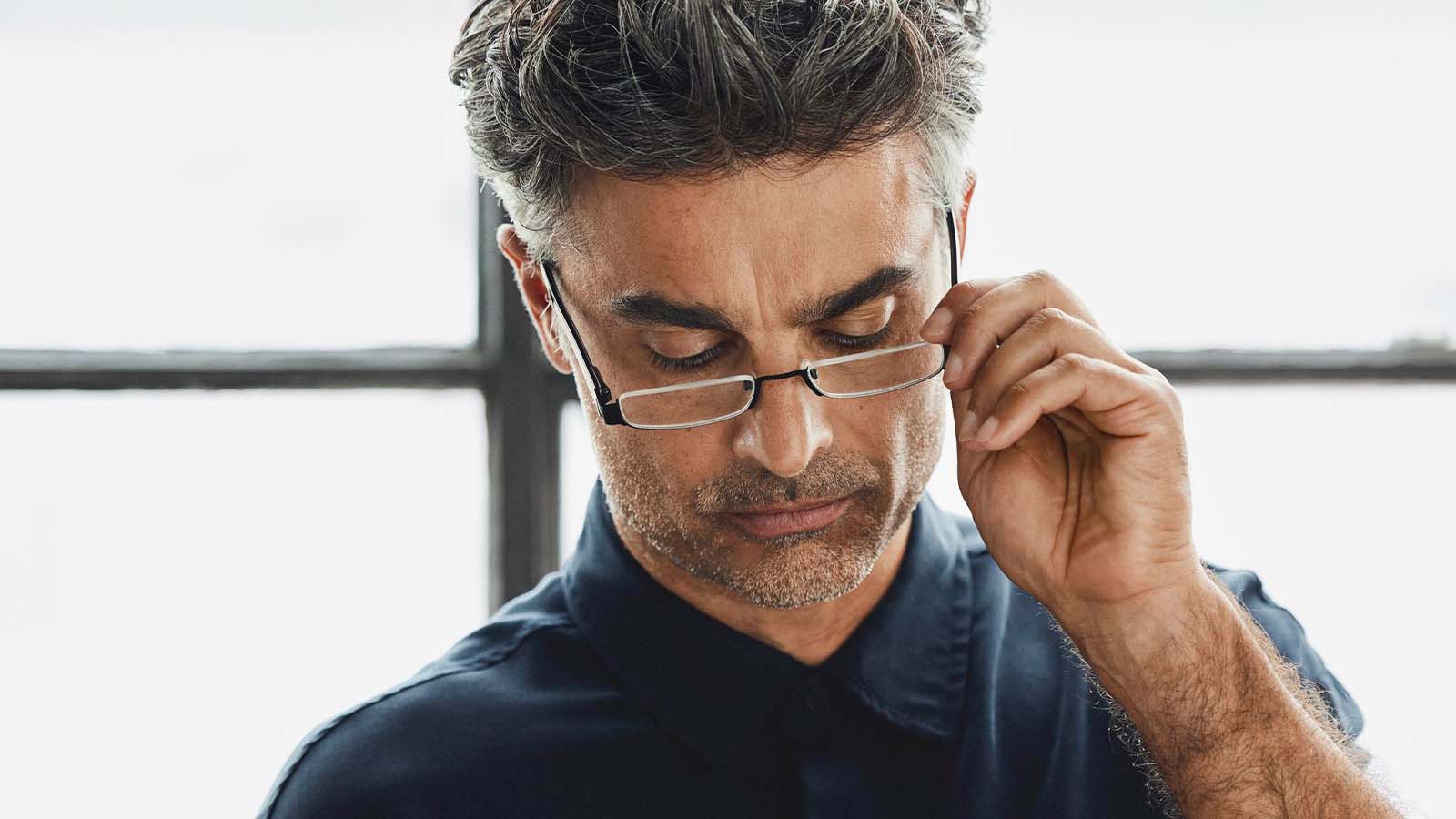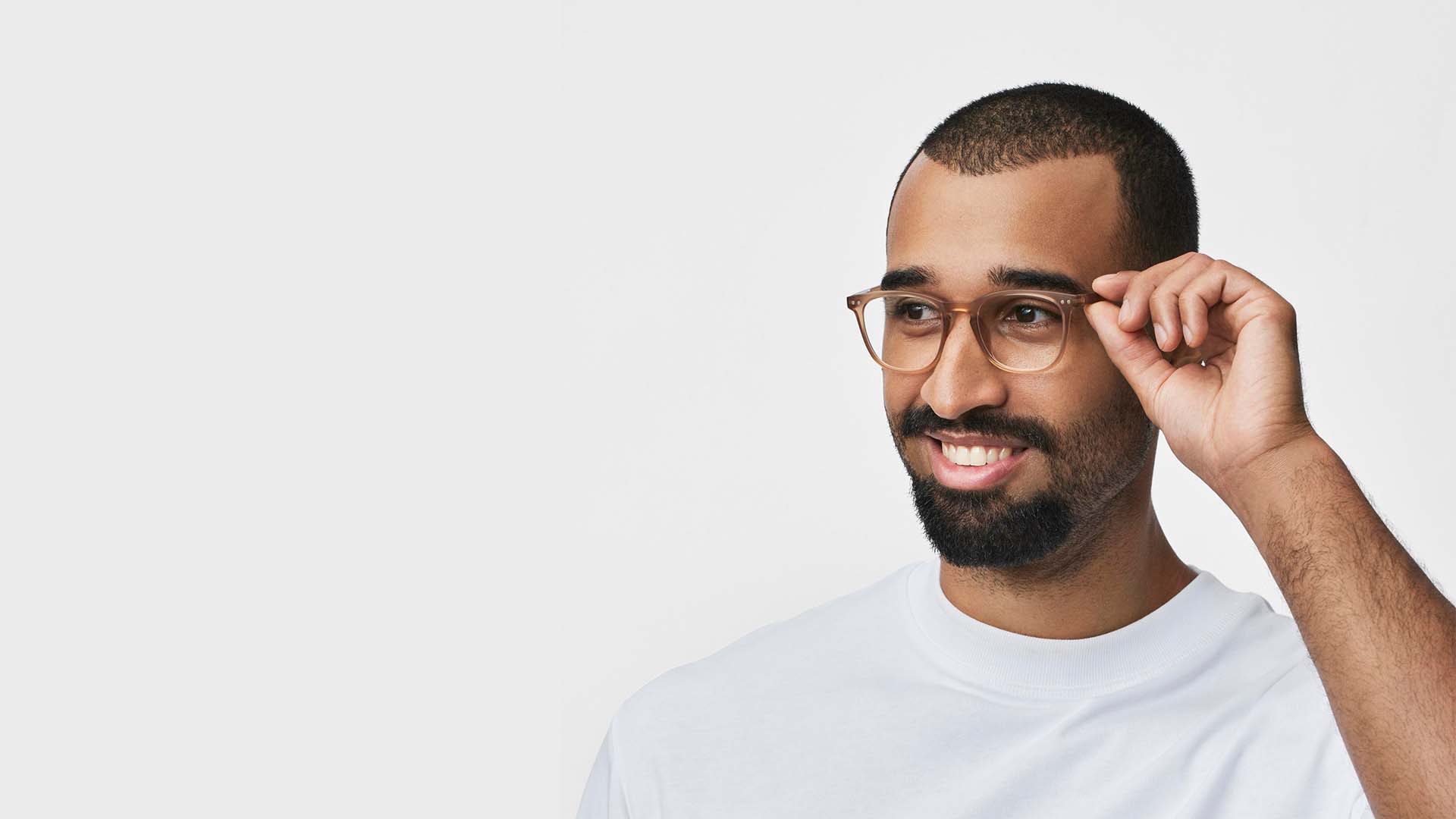
Which glasses suit me?
Choosing the right pair of glasses is an important decision that goes beyond your visual needs. Eyewear affects your appearance, enhances your personality and can serve as a fashion accessory. Therefore, you should consider several factors to find a pair of glasses that are functional, aesthetically pleasing and comfortable.
Facial features: The proportions and contours of your face should influence your choice of frame. For example, wider frames work well with round faces, while narrower or angular frames can complement an oval or elongated face.
Hairstyle and colour: Your hairstyle and colour are important because they affect the way your glasses look. Your glasses should match the style and colour of your hair to create a cohesive look.
Fashion and style preferences: Your personal style preferences should be reflected in your choice of glasses. Whether you prefer a minimalist, sporty or elegant style, your eyewear can help enhance that style or provide a deliberate contrast.
Seasonal influences: The choice of colour and material for your eyewear can follow seasonal trends or deliberately deviate from them. For example, light and transparent materials can be invigorating in spring and summer, while dark tones add warmth and depth in autumn and winter.
By taking these factors into account, you can ensure that your new glasses are both functional and fashionable, and fit in perfectly with your lifestyle.
Wondering what prescription your new reading glasses should have? Check out our blog post What do dioptres mean for reading glasses?
Below we explain typical face shapes and give recommendations for the right shape of glasses.
Glasses for square faces

Square faces are characterised by an equally wide forehead, cheeks and chin, and a pronounced jaw, which gives the face a striking appearance. People with this face shape should choose glasses with round or oval lenses as these soften the strong features and create a softer expression. Aviator and cat-eye styles are particularly suitable as they flatter the face. Glasses with square lenses accentuate angular faces and are less recommended unless you are going for a harsh, sharp look.
Glasses for round faces

Round faces have evenly shaped areas, with cheeks and forehead of approximately equal width and a round chin. Rectangular frames give contour to this face shape, making it appear longer and narrower. The frame should be narrow.
Glasses that accentuate the round shape are unfavourable: Round glasses with small frames should therefore be avoided.
Glasses for heart-shaped faces

Heart shaped faces have a broad forehead, pronounced cheekbones and a narrow, pointed chin. If you fit this description, you can wear almost any shape of glasses! Angular frames that widen at the top give more contour to the face. Glasses with oval or round lenses flatter heart-shaped faces and provide visual balance. Soft, oval frames are ideal for softer contours. Bright colours and bulky frames are less beneficial as they accentuate the wider forehead.
Glasses for oval faces

Oval faces are balanced and well-proportioned, with a narrower chin and forehead and more pronounced cheeks. The face is about twice as long as it is wide. People with this face shape have it easy, as almost any shape of glasses will suit them - round, square or extravagant. Just make sure the glasses are not too big or too small. Avoid frames that are too narrow, as this will make your face look longer.




